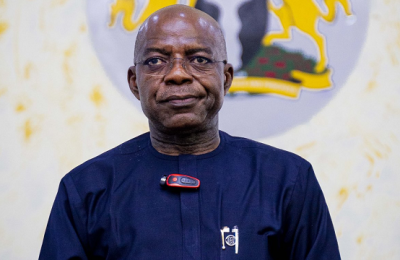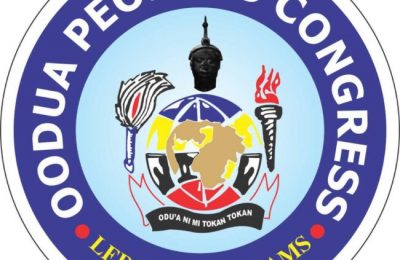
MANY voices have risen in response to the proposed Lagos-Calabar coastal highway project, each articulating a spectrum of concerns and criticisms. Among these voices is my esteemed leader, Atiku Abubakar, who has vehemently criticized BolaTinubu’s administration for flagrantly violating the stipulations of the Public Procurement Act. This act, designed to ensure transparency, fairness, and due process in the awarding of contracts, has been disregarded in favor of a hastily conceived project of unprecedented scale. Furthermore, another notable figure who has lent his formidable voice to this issue is Osita Chidoka, a highly respected chieftain of the PDP and a person I hold in high regard. His criticism underscores the gravity of the situation and adds weight to the growing chorus of disapproval. In addition, I, too, feel compelled to join these distinguished figures, along with numerous other prominent Nigerians, in condemning this ill-conceived and potentially disastrous endeavor. This grandiose project, shrouded in controversy and marked by procedural lapses, threatens to divert our nation’s resources and attention from more pressing infrastructural needs.
In Nigeria, Bola Tinubu’s administration secretly conceived, planned, and commenced the demolition of private businesses to accommodate the most ambitious project in the nation’s history, all without public consultation, due process, or diligence, and in clear violation of relevant laws regarding public spending. By the same token, Chief Osita Chidoka, in a recent interview pointed out that Britain has proposed building a third runway at Heathrow Airport because its current two runways are overburdened. Despite having the funds for it, they have been debating it for seven years to build consensus on prioritization from the taxpaying public behind a project that is needed. Clearly, 64 years after Nigeria attained independence from Britain, it is evident that the former colony has learned little from its former colonial masters. Firstly, it is evident that the procurement process for awarding this contract was egregiously violated. To elucidate, let us delve into the fundamental requirements mandated by the Public Procurement Act 2007 for awarding contracts of such immense magnitude. This act, which governs the procurement processes for government contracts in Nigeria, lays out a series of meticulously defined steps designed to ensure transparency, competitiveness, and fairness.

The process commences with the meticulous planning stage, wherein government agencies must scrupulously identify the necessity for a project, such as road construction or rehabilitation. This phase involves the preparation of detailed project plans and specifications, ensuring that every facet of the proposed undertaking is thoroughly documented and justified. Following this, the advertisement phase ensues, during which the concerned agency is obligated to disseminate a procurement notice through a national newspaper, as well as on the Public Procurement Portal. This is to invite bids from a wide pool of eligible contractors, thereby fostering a competitive environment essential for securing the best value for public funds. Subsequently, the bid submission phase unfolds, wherein interested contractors must meticulously prepare and submit their bids in strict adherence to the requirements outlined in the bid documents. This stage is crucial as it allows for the participation of diverse contractors, each bringing their unique capabilities and proposals to the table.
Upon receipt of the bids, the bid evaluation phase is activated. A dedicated Bid Evaluation Committee is tasked with the rigorous evaluation of the submitted bids based on predetermined criteria, such as technical capability, prior experience, and cost-effectiveness. This thorough evaluation process is integral to ensuring that the most competent and economically viable contractor is selected. Finally, the culmination of this intricate process is the award of the contract. The contract is conferred upon the successful bidder, determined by the evaluation results, and in stringent compliance with all procurement regulations. This step marks the official endorsement and commencement of the project, ideally characterized by a transparent and accountable process that upholds the integrity of public procurement.
In the case of the Lagos-Calabar coastal highway project, these procedural sanctities were flagrantly disregarded. The absence of transparent planning, the failure to publicly advertise the procurement notice, the inadequacy of a competitive bidding process, and the opaque nature of the contract award all point to a gross violation of the Public Procurement Act. Such deviations not only undermine the foundational principles of public procurement but also cast a pall over the legitimacy and efficacy of the project in question. None of these statutory obligations were adhered to, and the government’s attempts to defend the project, notably articulated by the Minister of Transport, Senator Dave Umahi, were inadequate and lacked the necessary rigor. A fundamental oversight was the absence of an Environmental Impact Assessment (EIA), an indispensable process for any project of this magnitude and ecological sensitivity. The significance of an EIA cannot be overstated, particularly for a coastal highway project that threatens to wreak havoc on delicate ecosystems. Coastal roads can precipitate the destruction of habitats, especially in ecologically sensitive areas such as wetlands, mangroves, and coastal forests. These habitats are not only biodiversity hotspots but also serve as critical buffers against coastal erosion and natural disasters.
Moreover, the road’s close proximity to the coastline raises significant concerns for marine ecosystems. Coral reefs, which are already under siege from climate change and pollution, could suffer further damage. These reefs are vital as they support approximately 25 per cent of all marine species and provide substantial economic benefits through tourism and fisheries (Spalding et al., 2017). Likewise, the construction could disrupt fish habitats and nesting grounds for marine turtles and seabirds, jeopardizing species that are often already endangered. Runoff from construction activities and the anticipated increase in traffic pose substantial risks of water pollution
Pollutants such as oil, heavy metals, and debris can degrade water quality, adversely affecting both marine and human life.
The degradation of water quality can lead to algal blooms and dead zones, which have devastating impacts on aquatic ecosystems (Diaz & Rosenberg, 2008).
Similarly, changes in coastal dynamics as a result of road construction can exacerbate coastal erosion, leading to significant loss of land and infrastructure along the coastline.
This phenomenon has been observed in numerous coastal developments worldwide, where the alteration of natural coastal processes has led to unforeseen and often catastrophic consequences (Hapke et al., 2010). The accelerated erosion could undermine the very infrastructure the project aims to develop, resulting in long-term economic and environmental costs.
The socioeconomic implications of this project are equally concerning. Coastal communities may face profound disruptions to their traditional livelihoods, including fishing and agriculture, as well as displacement due to land acquisition for the road.
Alterations in traditional land use patterns could erode cultural heritage and social structures, leading to a loss of identity and community cohesion. The displacement and economic disruption could lead to increased poverty and social unrest, further exacerbating the challenges faced by these communities. Along with these environmental and social ramifications, the financial underpinnings of the project are also questionable. It is evident that BolaTinubu’s administration and HI-Tech, owned by the Chagoury’s, cannot provide funds for this massive project. They have resorted to using saved pension funds from the PDP administration, an administration they claimed squandered the nation’s commonwealth and didn’t save for a rainy day. If the PDP hadn’t saved the funds for pensioners, would the Tinubu administration find these funds to use? What’s more is that, International financial institutions are unlikely to fund projects that have not undergone competitive bidding processes, as these practices are essential to ensure transparency and fiscal responsibility. According to the International Monetary Fund (IMF), Nigeria is already grappling with some of the worst road infrastructure on the African continent, a situation that casts a long shadow over its economic prospects and societal well-being (IMF, 2018).
Furthermore, given the dire state of Nigeria’s existing road infrastructure, with national highways spanning approximately 36,000 kilometers but only 5,000 kilometers dualized over the past five decades, the rationale for prioritizing a new coastal highway is highly dubious. The African Development Bank has estimated that between $100 billion and $150 billion would need to be spent annually over 30 years to close the infrastructure gap in Africa (AfDB, 2018). Thus, investing in the maintenance and enhancement of existing road networks, rather than embarking on grandiose new projects, would seem a far more prudent and economically viable strategy. To further elaborate, using pension funds meant for those who have spent their entire lives serving the government on an elephant project like the Lagos-Calabar highway is irresponsible and morally indefensible. These funds are a safety net for retirees, ensuring they live with dignity after years of service. Diverting these funds to finance such a controversial project risks the financial security of pensioners. Civil society must urgently challenge the use of these funds in court to stop the Tinubu administration from proceeding with this misuse. Protecting pension funds is crucial for upholding the rights and welfare of our senior citizens.
Despite this, BolaTinubu is known as a proper democratic man. He was once a Senator and a two-time former governor who understands democratic ethos and principles. Why then did he not allow for due process and ask real questions at the Federal Executive Council meetings before assenting to the contract? There was no competitive bidding, no transparent process of arriving at the cost, and the award of the contract was not transparent. The financiers of this project, HI-Tech, cannot raise funds for this project and they haven’t handled a project of this magnitude before in their entire existence. Given these points, it is imperative that BolaTinubu’s administration reassesses its priorities. Instead of plundering an estimated N1 trillion on a coastal highway in an era of economic downturn, the focus should be on revitalizing critical sectors such as health and the non-oil economy. Another point to consider is, enhancing and modernizing existing infrastructure, particularly shipping ports and inland waterways, would provide a more immediate and impactful boost to the economy. Shipping, being the most cost-effective method of transporting goods between coastal cities globally, offers a compelling alternative to road transport, which is often fraught with inefficiencies and high costs. This approach aligns with historical precedents, such as President Eisenhower’s construction of inland roads in the United States, which strategically linked airports and seaports, thereby bolstering economic growth and national cohesion. In the final analysis, the proposed Lagos-Calabar coastal highway project is fraught with environmental, social, and economic challenges that render it an ill-conceived venture. Instead of embarking on this potentially catastrophic endeavor, the government should focus on sustainable and pragmatic infrastructure development that genuinely addresses the nation’s needs and leverages its existing assets.
As history has shown with other large-scale projects, the costs of disregarding due process and environmental considerations are often too high to bear.
In the wise words of Henry David Thoreau: “What is the use of a house if you haven’t got a tolerable planet to put it on?”
- Charles, a political scientist, strategist and public affairs analyst, is a member of the Peoples Democratic Party (PDP).
ALSO READ: Drama as Binance executive, Gambaryan, collapses in court over alleged ill-health







